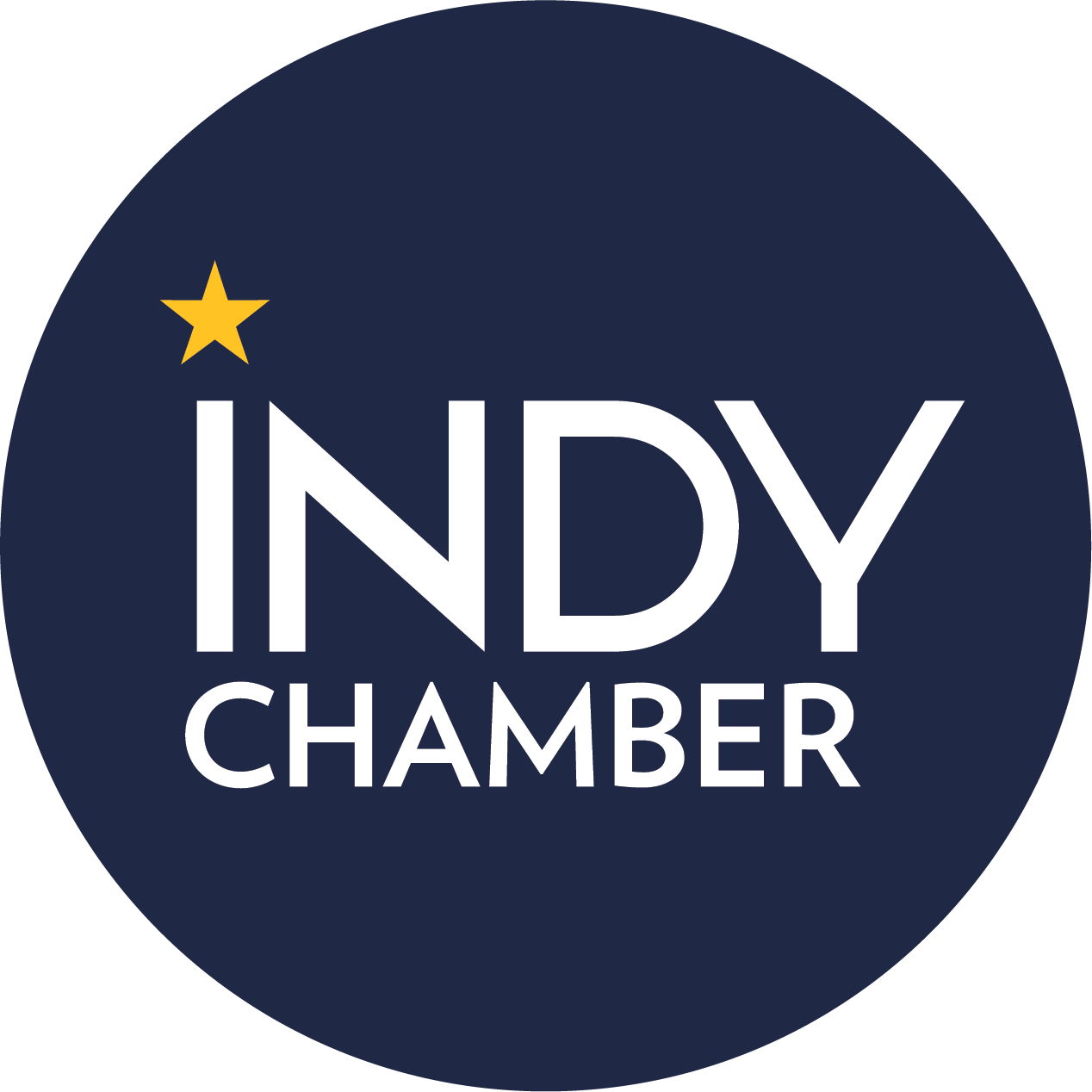Like Déjà vu All Over Again: Yogi Berra Edition

Major League Baseball phenom Yogi Berra was always destined for the Hall of Fame. His legendary career behind the commentator’s mic nearly eclipsed the public’s memory of his career on the field. His comical, apt, pointed, convoluted, but somehow essential take on a play or player could make us laugh until we cried.
Comical, apt, pointed, convoluted, and essential could also be used to describe the legislative process. To help you make sense of it all: behold! The inaugural 2024 Indy Chamber Legislative Update: Yogi Berra Edition. Whether it leaves you laughing or crying, just remember, as Yogi said, to “take it with a grin of salt.”
It’s like déjà vu all over again.
Sometimes, moving forward requires some doubling back. This week, HB 1199 was filed by Representatives Julie McGuire, Jeffr Thompson, and Mike Speedy, and we’ve been informed that it will receive a hearing next Wednesday in the House Ways and Means Committee.
The Mile Square Economic Enhancement District (EED) is the product of a decades-long conversation about how to drive sustainable, dedicated resources toward issues of public safety, homelessness response, and cleanliness in the heart of our capital city. Particularly since the pandemic, the urgency to drive solutions to challenges downtown has ramped up, and of the largest 30 cities in the US, Indy was the only community without a similar tool.
The Indiana General Assembly voted for the creation of the EED statute in the 2023 state budget, giving Indianapolis the option to implement a supplemental fee in the Mile Square to fund safety, homelessness, and cleaning services—basic elements that are essential to a downtown that feels welcoming, cared-for, and in which all Hoosiers can feel at home.
Since the budget’s passage in May, the Indy Chamber and Downtown Indy, Inc. have led a public engagement process—meeting with hundreds of downtown property owners and stakeholders—to build a consensus proposal focused on their priorities and following their direction for how best to fund these critical services.
In December, the Indianapolis City-County Council held an hours-long public hearing with the Metropolitan Economic Development Committee, where downtown businesses, property owners, residents, and service organizations expressed their strong support for the EED proposal and the urgent need to fund these solutions.
The committee and full council voted to enact the EED, which entails an eight-member board with majority property-owner representation and a $5.5 million initial budget, funded by an annual $250 flat fee on noncommercial residential properties and a commercial property fee equal to 0.1681 percent of the assessed value.
The state of downtown impacts the perception and momentum, not just of Marion County or the Central Indiana region but the entire state. That’s why the Indy Chamber Board of Directors and Policy Council members endorsed the effort to support the EED’s establishment—we cannot afford to kick the can down the road on solutions for downtown, and property owners must be in the driver’s seat for how EED dollars are invested.
Given the amount of engagement and support for the EED proposal, it was deeply disappointing to see HB 1199 call for the full repeal of the district with no alternative mechanism to answer the need for enhanced safety, cleanliness, and homelessness strategies.
In the weeks following the public hearing at council, we have seen misleading social media ads targeting downtown residents, the launch of an anonymous microsite filled with disingenuous language, and form letters being sent to apartment tenants pushing them to express opposition to the district or risk seeing their rent increase by unspecified amounts.
To ensure transparency and public awareness of the facts of how the EED came about and will function, the partners advocating for the Indy EED have launched a microsite called CareForMileSquare.com. This site includes answers to frequently asked questions, testimonials of support provided by downtown stakeholders – including many of you, and ways of getting engaged moving forward. We encourage you to support the EED and share the site with your networks. Feel free to reshare our LinkedIn post here, retweet us here, or utilize our social toolkit by accessing it here.
Most importantly, it is critical to mobilize support and testimony for the EED and the year-long collaboration behind it at the House Ways & Means Committee scheduled for Wednesday, Jan. 17, at 1:30 pm. To add your name to the list of supporters attending, please contact Adam Burtner.

The future ain’t what it used to be.
Governor Holcomb delivered his final State of the State address this week, mostly focused on Indiana’s future, which won’t be what it used to be without a literate and skilled workforce. The priorities include plans to strengthen the state’s third grade reading scores, mandate computer science for high school graduation, require all state universities to create three-year degree programs, and expand options for Hoosiers to earn associate degrees.
Arguably, the biggest news out of Holcomb’s address was the announcement that the Lilly Endowment is donating $250 million to support projects under Indiana’s READI program—an investment of such impact that we suspect even Yogi would’ve been left speechless. In addition to being the largest single award the Lilly Endowment has ever given, this grant marks its first statewide contribution specific to economic development.
It's hard to overstate the significance of the Endowment and Eli Lilly & Co.’s long-term efforts to make Indiana’s communities more prosperous. Perhaps most importantly, Lilly has helped to build a civic culture of investment and community impact—a mantle which is answered enthusiastically by many of the Indy Region’s other corporate citizens. This week’s announcement was a potent reminder of our state’s great potential—a future we are all building together.
I'm not going to buy my kids an encyclopedia. Let them walk to school like I did.
When it comes to our various routes to education, details matter. That was the thrust of the Indy Chamber team’s testimony this week on the first hearing of HB 1001.
Indy Chamber supports efforts to create and expand work-based learning and apprenticeship programs, recognizing that education should include options responsive to the needs of the marketplace and that the state needs multiple pathways to high-skill, high-wage careers. Seventy percent of future jobs will require a degree or credential, so we appreciate the focus on expanding the state’s talent pipelines.
That said, we have concerns about diverting funds traditionally dedicated to higher education access, especially in the context of reduced enrollment in higher education. Accessibility of higher education and expanded work-based pathways to education and employment must go hand in hand to build the workforce Indiana employers need. We’d like to see a strategy that views these as compatible, complementary, and—ideally—permeable paths, not one that pits work-based options or higher education against each other.
A nickel ain’t worth a dime anymore.
Members of the State and Local Tax Review (SALTR) Task Force no doubt sympathize here, if not with Yogi, then with Hoosier families and employers facing rising prices for all manner of goods and services.
The SALTR Task Force was established to study options to keep Indiana’s tax climate competitive and efficient. Indy Chamber’s perspective on the issue is shaped by our unique position as not only a business membership organization but as the home of Indy Partnership and Develop Indy economic development organizations. We hear from regional mayors, town leaders, site selectors, and economic development practitioners that successfully attracting new talent and investment to their communities rests more on quality of life than general tax issues.
Across the state, the business community and prospective investors are begging for quality of life investments to be sustained and expanded. Any changes to Indiana’s tax code must ensure that cities and towns have the resources to provide the services, amenities, and community assets employers and talent seek.
If you don't know where you are going, you might wind up someplace else.
It’s anyone’s guess, at this early stage, where the 2024 Indiana General Assembly (IGA) session is going—but we know what we’ll be keeping eyes on as we get there. Below are some of the comical, pointed, apt, convoluted, and essential bills and issues the Indy Chamber team will be tracking as we sprint through this short session:
Pair up in threes.
Indiana lawmakers have filed a trio of bills to clarify precisely who qualifies for resident tuition rates at our state’s institutions of higher education. HB 1065, HB 1373, and SB 106 all stipulate that anyone who attends a public or nonpublic high school in Indiana for at least three years and receives a diploma or its equivalent from a public or nonpublic high school is eligible for the resident tuition rate at state-funded universities. Indiana is one of five states that doesn’t allow this, so it’s a long overdue change.
We have deep depth.
This year’s legislative calendar features a raft of bills addressing Indiana’s education and workforce development challenges.
In HB 1042, Representative Dave Heine creates a funding mechanism to support “Transition to Teaching Scholarships” to help people with a college degree earn a teaching certificate through a one-year course of study. We can’t ignore that schools around the state are struggling with teacher shortages, and Heine’s bill offers an interesting option to help meet this need.
Focused on Hoosier parents, Representative Sharon Negele has introduced HB 1024 to align state law with federal regulations regarding employer accommodations for pregnant people. We support this commonsense policy and hope to see this bill pass.
From Representative Chuck Goodrich comes HB 1236, which proposes an Apprenticeship Tax Credit of up to 50 percent of qualified expenses for businesses that establish an apprenticeship program. HB 1236 is one of many legislative tools being offered in this session to help employers take on youth apprentices, a top priority for the Indy Chamber.
For our young people who complete a two- or four-year degree at one of Indiana’s post-secondary institutions of education, Representative Tim O’Brien offers HB 1301, an income tax deduction for recent graduates. We appreciate the creativity and goal of capturing the massive numbers of out-of-state students who come to school in Indiana.
If the people don’t want to come out to the ballpark, nobody’s going to stop them.
From Representative Beau Baird comes HB 1345, a bill aimed at getting people out to the ballpark, among other tourist destinations, by authorizing the creation of Tourism Improvement Districts, or TIDs. Baird’s bill is a variation on another TID—Tax Increment Districts—and spells out requirements for creating a Tourism Improvement District and authorizes said districts to charge a special assessment and issue bonds.
You wouldn’t have won if we’d beaten you.
That, friends, is a fundamental truth on the baseball diamond and at the ballot box, and presumably one of the principles that would be covered by Representative Elizabeth Rowray’s Civics Education bill, HB 1211. Rowray’s bill is connected to the Indiana Bar Association and aligned with business community efforts like the Indiana Business Alliance for Civics, a nonpartisan, non-political coalition of Indiana businesses, chambers of commerce, and trade associations. The alliance, which is free to join and open to companies of any size, assists companies with voter registration for employees, voter education in the workplace, and engaging the next generation of voters.
Haven't had a chance to review our 2024 priorities? Check out our full Legislative Agenda here.
Never miss an update. Sign up for our newsletter here.

Join Our Newsletter
Quick Connect Links


